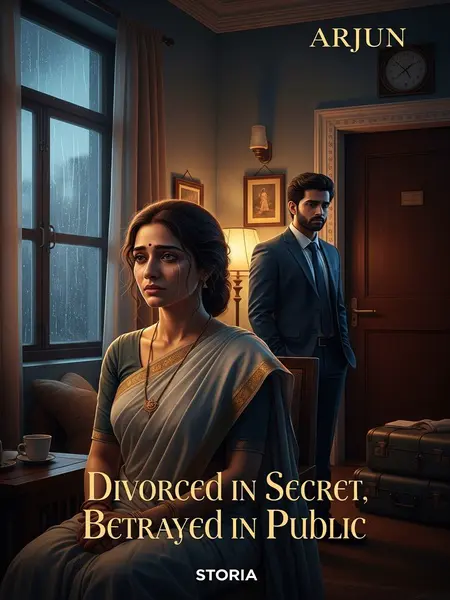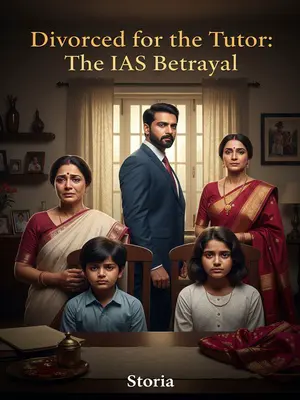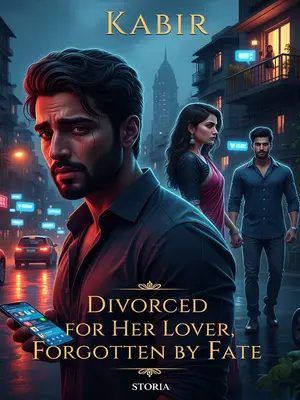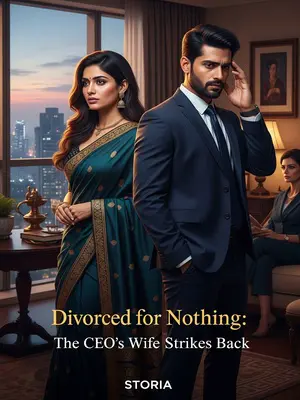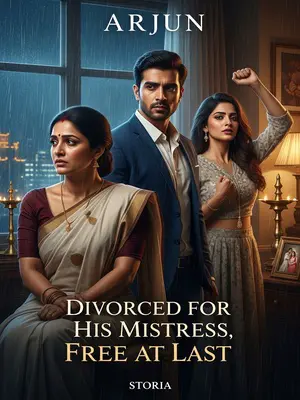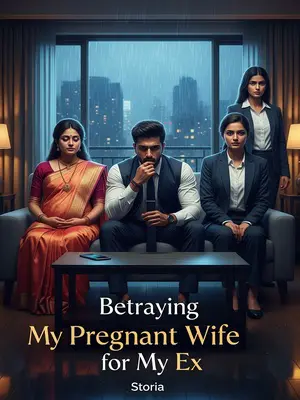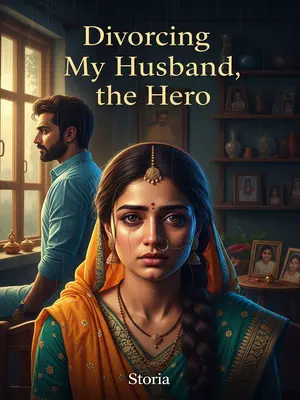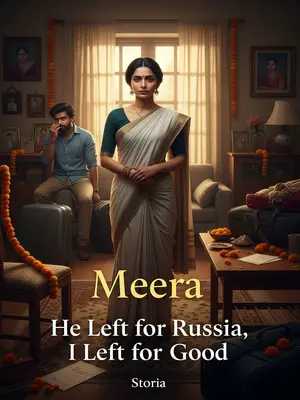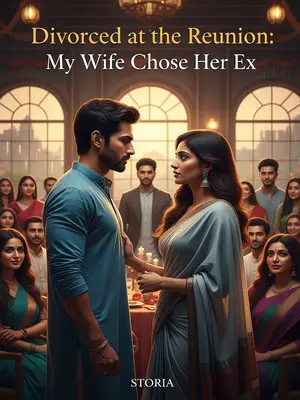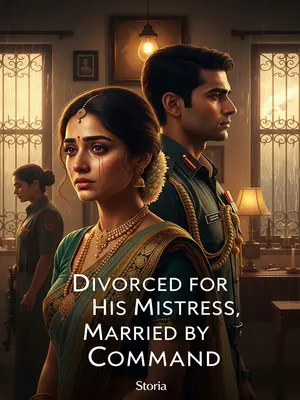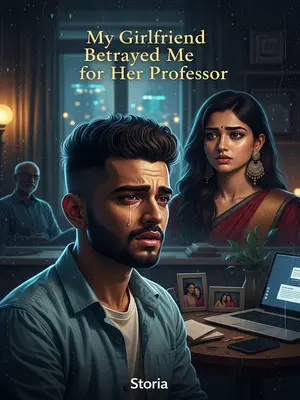Chapter 6: Divorce and Departure
Arjun arrived at the family court before me. When I got out of the auto, he was standing there, eyes half-closed, cigarette in hand, thumb pressing his temple. Noticing my gaze, he looked up and stubbed out the cigarette.
The morning was still, the usual chaos of the city paused just outside those gates. I tucked my hair behind my ear, squared my shoulders, and walked towards him.
“Let’s go.”
His voice was flat, but I could hear the exhaustion behind it. We entered the court, past the chai-wala and the row of advocates’ offices, each with their names painted in faded blue.
The divorce process went smoothly. The moment I got the divorce certificate, I couldn’t help but let out a long breath.
The magistrate barely looked at us—two more names on a stack of files. When he handed me the papers, I felt a strange sense of relief, as if I’d finally finished a long exam.
“What about your stuff at the house?”
“Throw it away.”
He didn’t look back as he said it. That was Arjun—always burning his bridges.
We turned and went our separate ways.
As I walked out into the sunlight, I brushed past a group of women in bright saris waiting for their own hearings. One of them caught my eye and gave me a knowing, sympathetic nod. The auto-rickshaw drivers called out, but I barely heard them.
I still had a lot to do. I called a familiar cleaning service to clear out all the men’s things from the flat, and packed the rest for storage.
The workers arrived in their faded uniforms, carrying boxes and black plastic bags. I directed them quietly, not trusting myself to speak too much.
Halfway through, my younger cousin came out of the study with a 36-inch photo frame.
“Didi, what about this?”
She looked so innocent, holding the heavy frame like it was a trophy.
Inside the cracked, web-like glass was an enlarged red marriage certificate photo. Looking at the two people in the picture, heads touching, smiling so happily, I felt a little dazed.
We looked so young, so hopeful. I wanted to reach into the picture and warn that girl of what was coming.
This was what Arjun and I hung above our bed instead of a wedding photo. Back then, we didn’t take wedding pictures or hold a wedding—just quietly got the certificate behind everyone’s backs.
Our marriage was a secret, but that photo was our rebellion—a proof of love, if nothing else.
The reason: his family didn’t approve. If we insisted on being together, we could only marry in secret.
In India, family always comes first. I didn’t blame him, not really. But the sting never faded.
I didn’t mind, but Arjun was upset about it for a long time. At first, he said once he was established, he’d make it up to me and announce our marriage to everyone. Later, he said it didn’t matter, as long as we were happy, who cared what others thought. Later still, he smashed the frame and said coldly, “I’m really glad I listened to my mum.”
That night, I slept on the sofa, staring at the broken glass on the floor. Some wounds never heal.
“Throw away the frame. Shred the photo.”
My cousin nodded, not asking questions. She knew better than to pry.
After everything was settled, a week later I boarded a flight to London. I changed my SIM card, told no one except Ritu.
At the airport, the smell of filter coffee and parathas mingled with the hum of announcements. I looked back once, then let go.
The first few days overseas were chaotic—finding a place to live, learning the roads, shopping, handling enrolment. The unfamiliar environment and language made everything feel empty and unreal. But soon, the demands of school swept all that away.
My new flat was small but bright. I hung fairy lights in the window, brewed masala chai on a borrowed induction stove, and tried to build a new routine. The aroma of ginger, cardamom, and tea leaves curled through the kitchen, wrapping me in memories of home before I video-called Ritu.
At night, video-calling Ritu, she said, “I ran into Arjun today. He doesn’t know you went abroad, does he?”
I shook my head, the glow from my laptop making my face look ghostly.
“No.”
“No wonder.”
“What do you mean?”
Ritu said someone at dinner asked about me, wondering why I hadn’t been around. Neha couldn’t wait to say, “Meera resigned. I’ll be taking over her work from now on. If you need anything, contact me.”
She imitated Neha’s voice perfectly, making me snort with laughter.
Just as she didn’t like Arjun, Ritu didn’t like Neha either. She said coolly, “A small company like yours can’t keep someone like Meera. Of course she left for better opportunities.”
I could almost picture her, eyebrow raised, ready to fight anyone for me.
Arjun sneered. “So she found a new job.”
“No, she went abroad.”
…
“You have no idea—when Arjun heard you went abroad, he jumped up and spilled hot dal all over Neha’s leg. Neha screamed, but Arjun ignored her, just stared at me, face pale.”
I smiled, but my heart skipped a beat. Even after everything, he still cared. Or maybe he just hated being left behind.
I just took Ritu’s words as gossip, didn’t think much of it.
Three days later, Ritu called me, furious.
“I’m going to kill Arjun. He comes to the office every day to block me, asking where you went. I asked why he was looking for you, but he wouldn’t answer. He reeks of smoke—it’s suffocating.”
Her voice was hoarse from shouting, and I could hear the frustration beneath her anger.
I was silent for a few seconds. “If he’s bothering you, just tell him. It’s fine, you don’t have to hide it.”
I didn’t want her to suffer on my behalf. Friendship in India means carrying each other’s burdens, but I didn’t want to be the reason for hers.
“I wasn’t going to hide it. I just don’t think he needs to know.”
But Ritu was adamant. “No. Why should I tell him? I just won’t. Oh, get ready—your birthday’s in ten days, I’ll come celebrate with you.”
I grinned, making a mental note to buy candles and a small cake from the local bakery.
